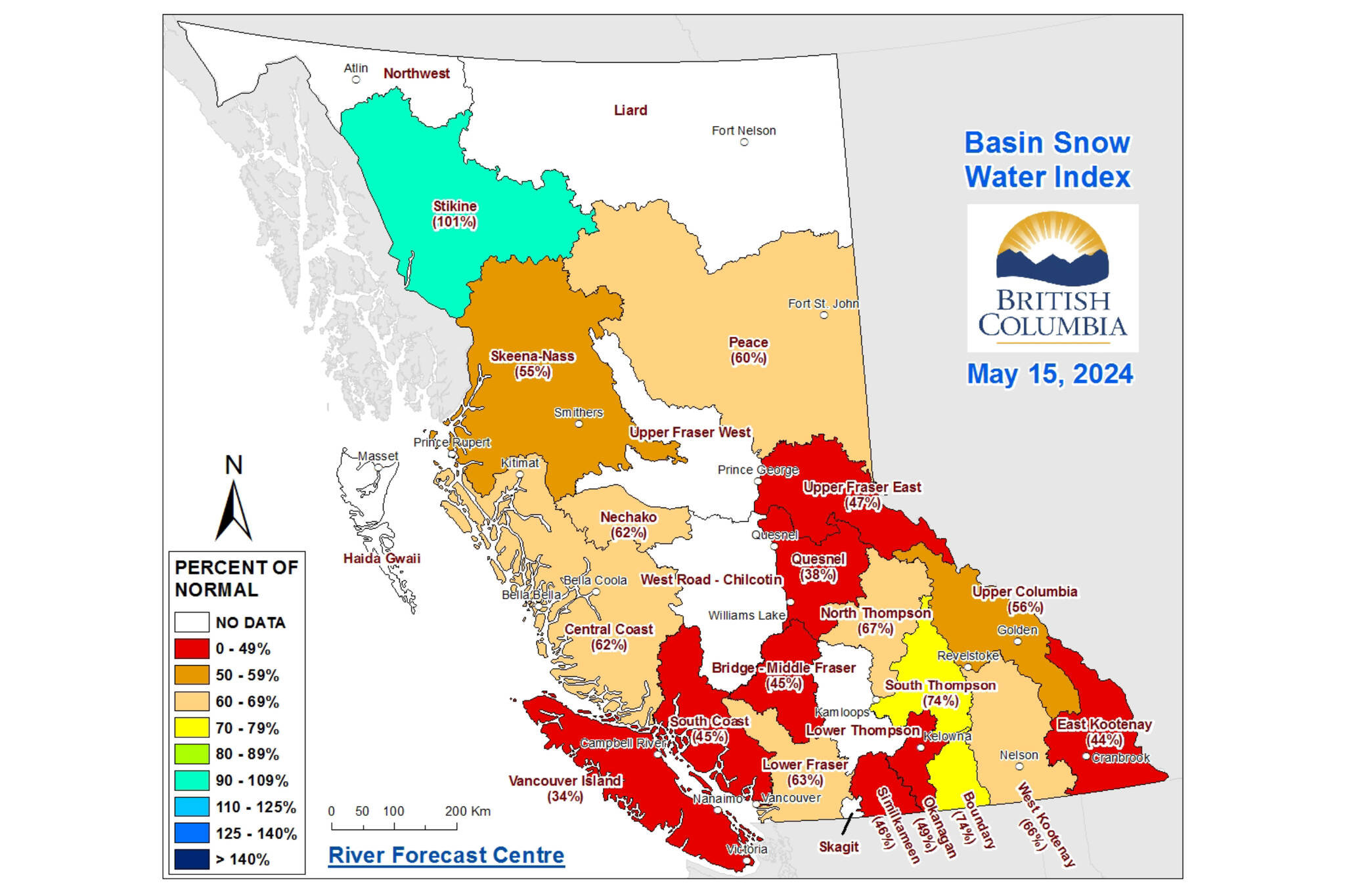Snow levels in British Columbia are well below normal levels, according to the most recent data from the province.
The May 15 snow survey and water supply bulletin, released by the province last week, showed the provincial snowpack is at 57 per cent of normal levels across the province. The May 1 data was 66 per cent of normal.
On average, around 17 per cent of the seasonal snowpack had melted by May 15, but this year, 31 per cent of the peak snowpack had melted by that date. This was the result of low elevation melt in April and warm weather from May 9 to 12.
READ ALSO: B.C. prepares for wildfires as forecasts call for hot weather amid drought
READ ALSO: B.C. snowpack at lowest March 1 levels in 2 decades, 2nd lowest ever
“Overall, the provincial snowpack remains extremely low for May 15,” the report stated. Snow levels across B.C. have been low throughout the winter.
By May 15, 2023, 43 per cent of the snow pack had melted.
The Vancouver Island snowpack was at 34 per cent of normal as of May 15, while the Stikine snowpack was at 101 per cent of normal. This was the only snow pack reporting above-normal levels.
Because of the low snowpack in much of the province, reduced flood risk is expected. In addition, there is an increased risk of drought this year.
“This season continues to have increased hazards of drought due to long-term precipitation deficits, low snowpack, early snowmelt and an increased likelihood of warmer than normal spring and summer weather,” the report states.
Seasonal forecasts indicate a moderate likelihood of above-normal temperatures throughout the province from May to July.

